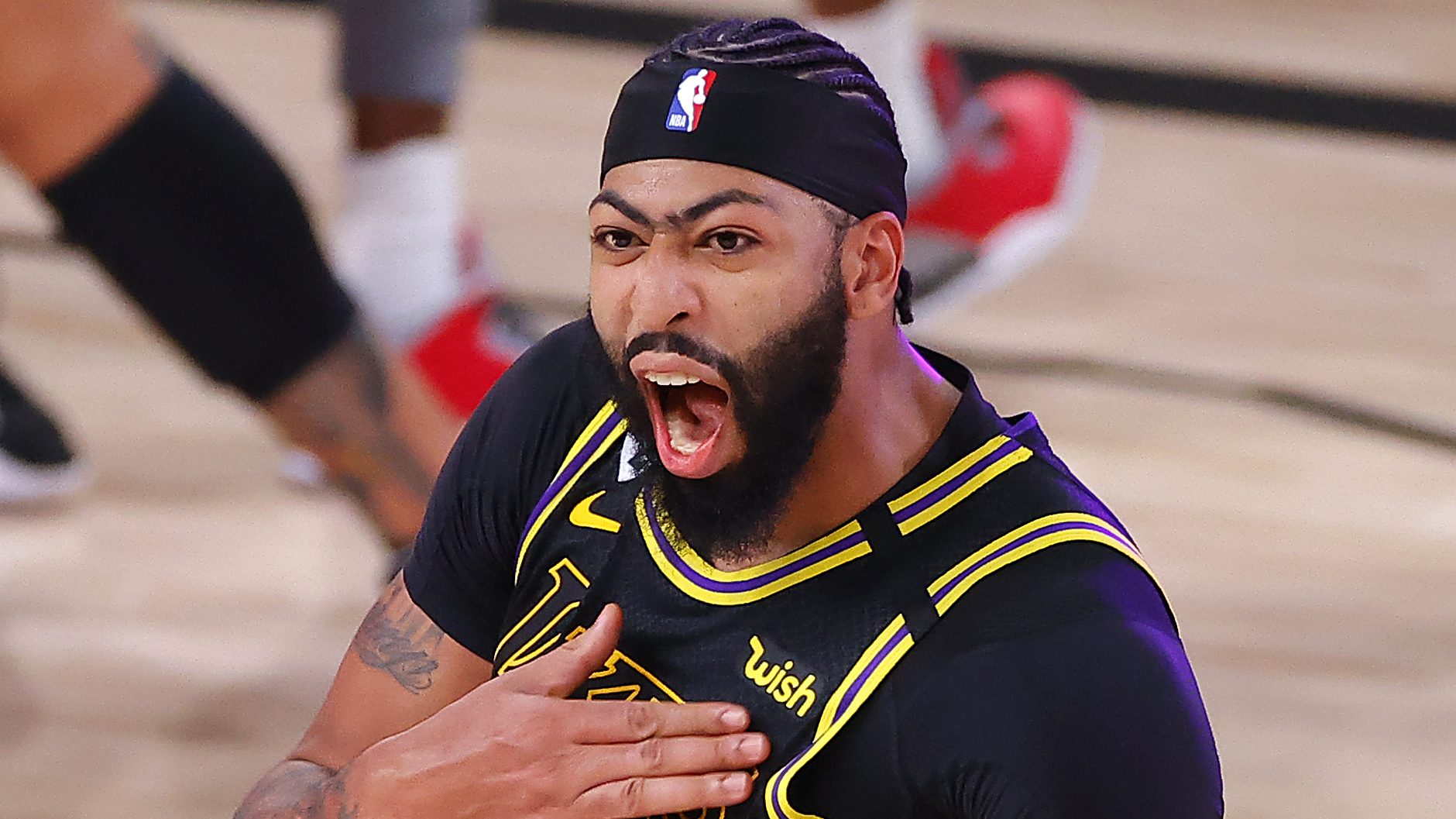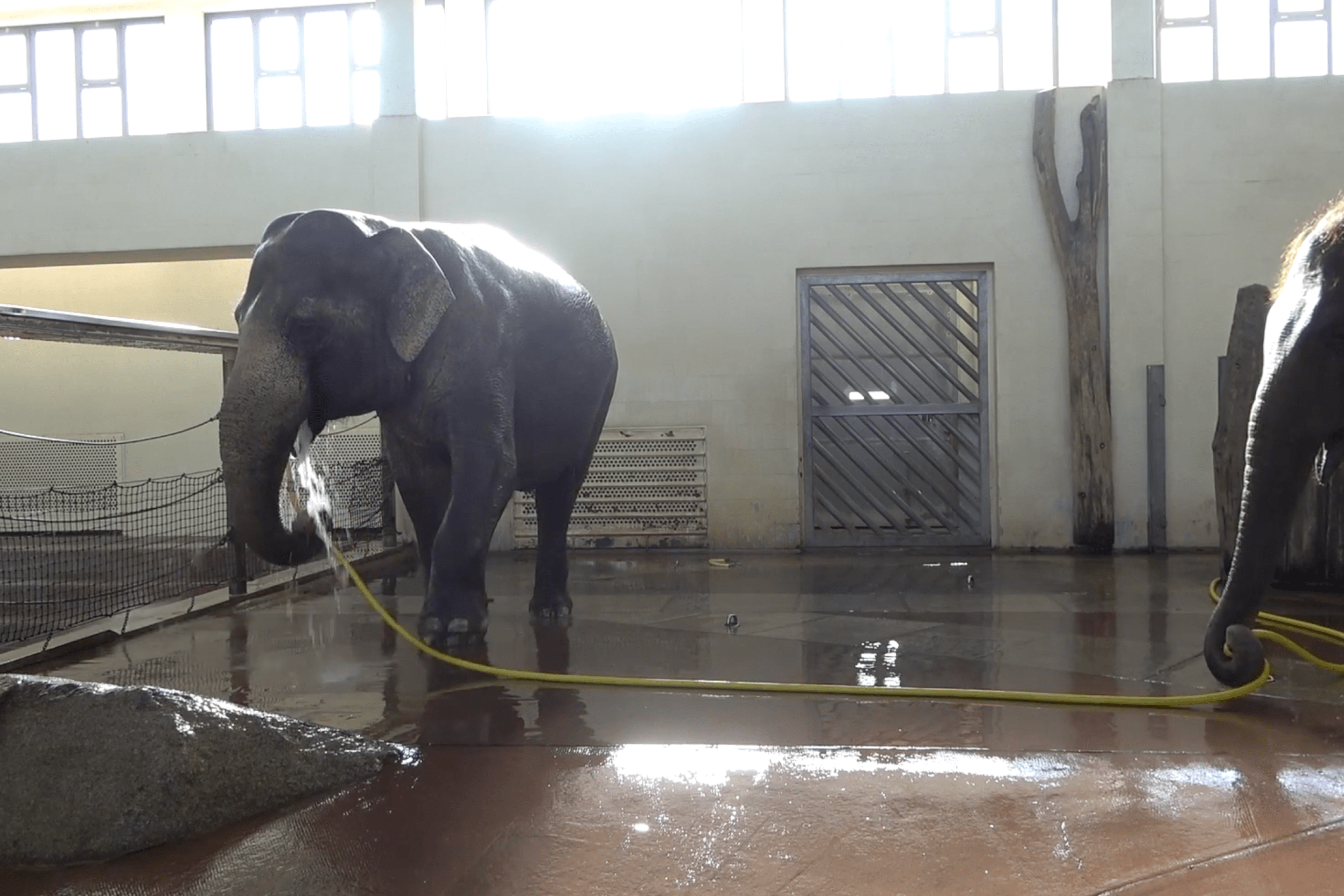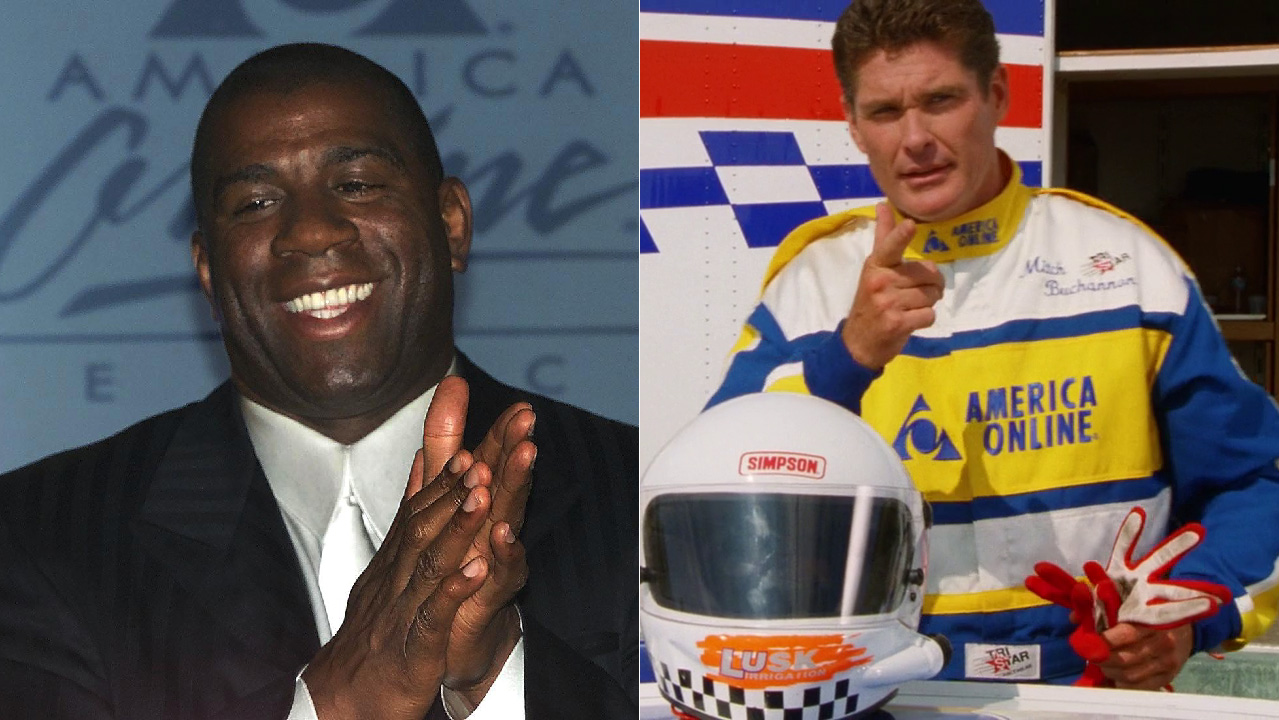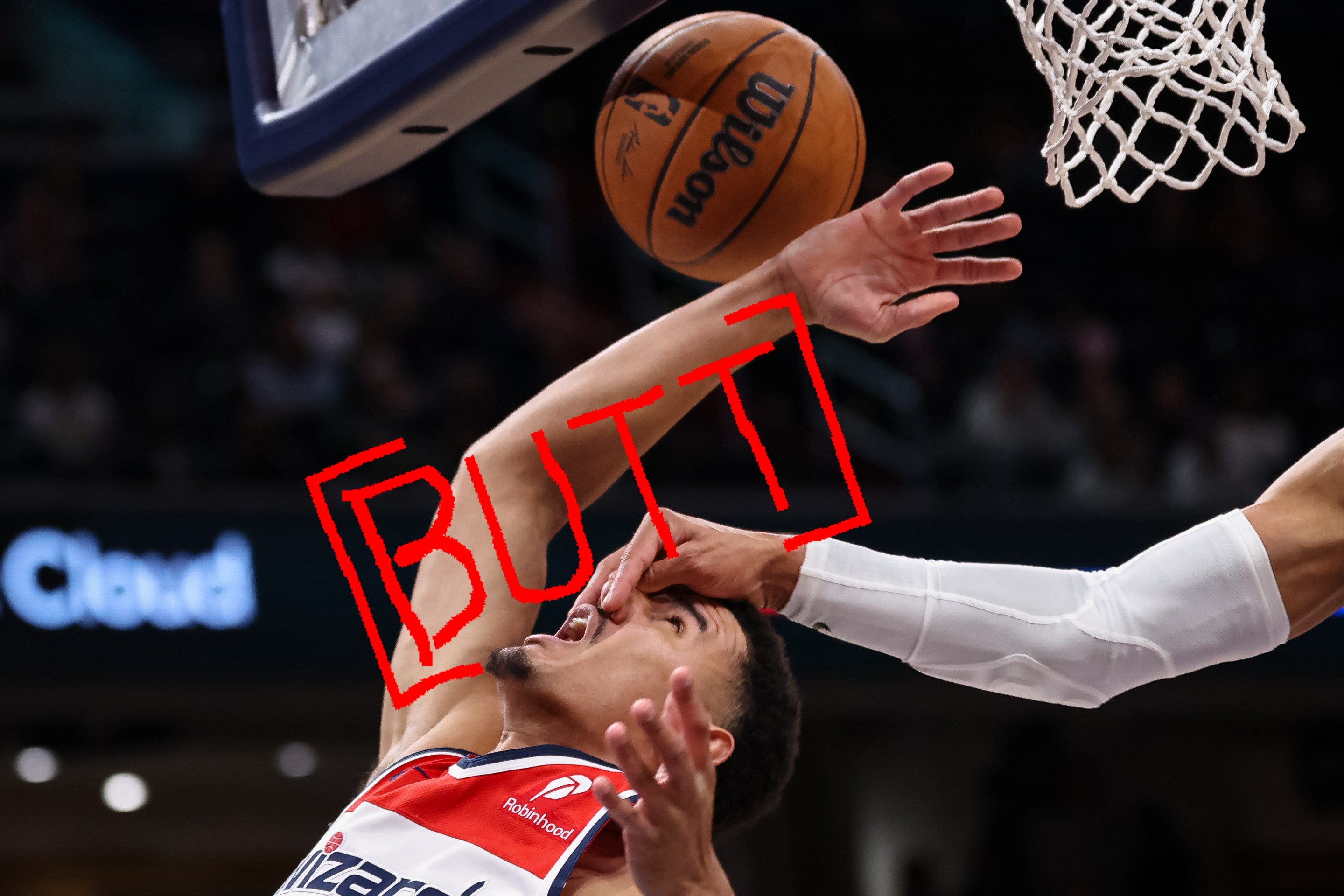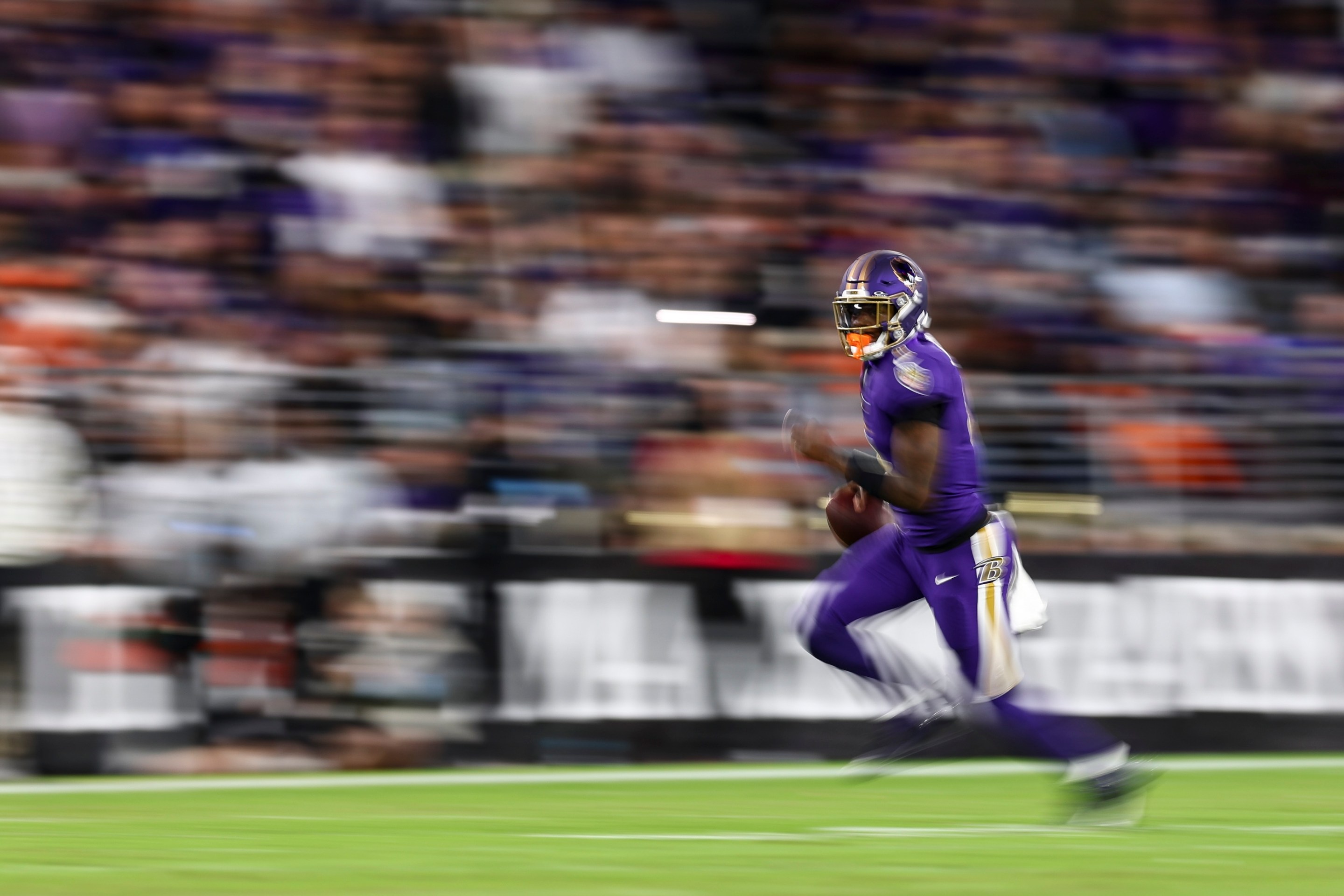If you have paid much attention to Anthony Davis over the nearly eight seasons of his professional career, you've likely wondered, at least once if not at routine intervals: Why doesn't he always play like that?
Last night was an occasion to wonder it again. Davis came alive in the second half of the second game of the Western Conference Finals, scoring 22 of his game-high 31 points after halftime, including a step-back three-pointer from the left wing to beat the shot clock with around three minutes left to play—and then, as you may have seen, the buzzer-beating, game-winning three-pointer from nearly the same exact spot. Here's that:
During stretches like last night's second half, when he is commanding the flow of play at both ends of the floor, Davis is practically a team unto himself. He'll disrupt the opposing offense at the point of attack, then snuff out an off-ball action with a savvy rotation, then soar out of nowhere to swat away the crappy resulting shot attempt, then pull down the rebound. He'll bring the ball up the floor, initiate the offense, bail it out of a ragged possession with the kind of smooth one-on-one move you might expect to see from a slick wing scorer half a foot shorter than him—and then, if it comes to that, score a put-back bucket off of his own miss. All of the above will happen within 40 seconds of game time. A quarter or a half will go by during which it seems for all the world that everything of consequence that happened on the court happened because Anthony Davis made it so. In those stretches, it seems obvious that Davis is not just the most extraordinary player in the NBA, but at least as talented as anyone else who has ever played. It seems inconceivable that a team with him on it could ever lose. Holy shit, man, you find yourself saying, to yourself or to friends, Anthony Davis is incredibly fucking good. As though this is news about a dude who has made the All-NBA first team four times in eight seasons.
The thing is, he doesn't always play like that! Sometimes he seems content to blend into the background of the action, for whole games if not weeks at a time. Sometimes he is like Tall Harrison Barnes, robotically going through the motions of overpracticed moves and (prior to this season anyway) apparently indifferent to their results. It's been a whole Thing. It accounts for the broad perception—again, eight years into a career that already includes seven all-star honors, four all-defensive selections, and four first-team All-NBA selections—that Davis, so far, has been something of a disappointment.
All of this brings us to the aftermath of last night's game, when Charles Barkley, during Davis's appearance on TNT's Inside the NBA postgame show, asked him the following question:
"You know Anthony, you have an advantage every single night you step on the floor. But some nights you don't seem aggressive. What is that about you that some nights you're just not aggressive?"
This was, by miles, the most blunt form of this question that I've ever heard asked; in the moment, it seemed clumsy, if not downright rude. And then Davis, typically one of the NBA's more sterile and programmatic exponents of rote Brand Brain public speech, did something he almost never does: He just... answered the question:
"I just, I go out there, and I think I think too much. You know, I know some of the moves I want to get to going into each game, and I look to make the right plays instead of going out and, like you said, being aggressive. And you know, it's a big difference, the games where I'm aggressive it definitely carries our team, it helps our team, and that's gotta be my mindset from here on out. I try to go out there and play the right way but sometimes... you know especially [LeBron James], he tells me all the time, like, 'Alright, it's enough passing, it's time to go to work, be aggressive, be the player that you are.'"
To be sure, this is not exactly Floyd Patterson baring his soul to Gay Talese, here. But the stuff about coming into a given game with a set of moves in mind, and sometimes focusing too hard on that instead of just flexing his talent and making shit happen is an actual insight into how Anthony Davis's mind works, how he approaches his job and the ways his habits can undermine him from time to time. It is an actual revealing answer. And Charles Barkley got it by asking him, in so many words, "How come you suck shit sometimes?"
I don't want to dismiss the possibility that some combination of Barkley's relative credibility on the subject as a Hall-of-Fame former player, the high of having just hit a buzzer-beating three-pointer to win a conference finals game, and/or the pressure of the live national-television format account for this sudden lapse into frankness from one of the sport's cagier dudes. But it seems worth contrasting Barkley's direct approach to how this sort of subject typically comes up when professional reporters raise it: Anthony, 31 points tonight, obviously the big basket there at the end. You really seemed to look for your shot and to assert yourself at the offensive end in the second half of this game. Can you just talk about the importance of staying aggressive out there, and how that fits into your goal of being the champion of the National Basketball Association?
What's missing from that framework (which, admit it, you can just hear friggin' Chris Haynes or whoever asking that question with that exact phrasing, can't you?) is the actual question, which is: "Why don't you always play like that?" Or, as Barkley put it: "What is that about you that some nights you're just not aggressive?" I didn't want to let the moment pass without noting this. Sometimes the way to get the answer is to ask the question.
